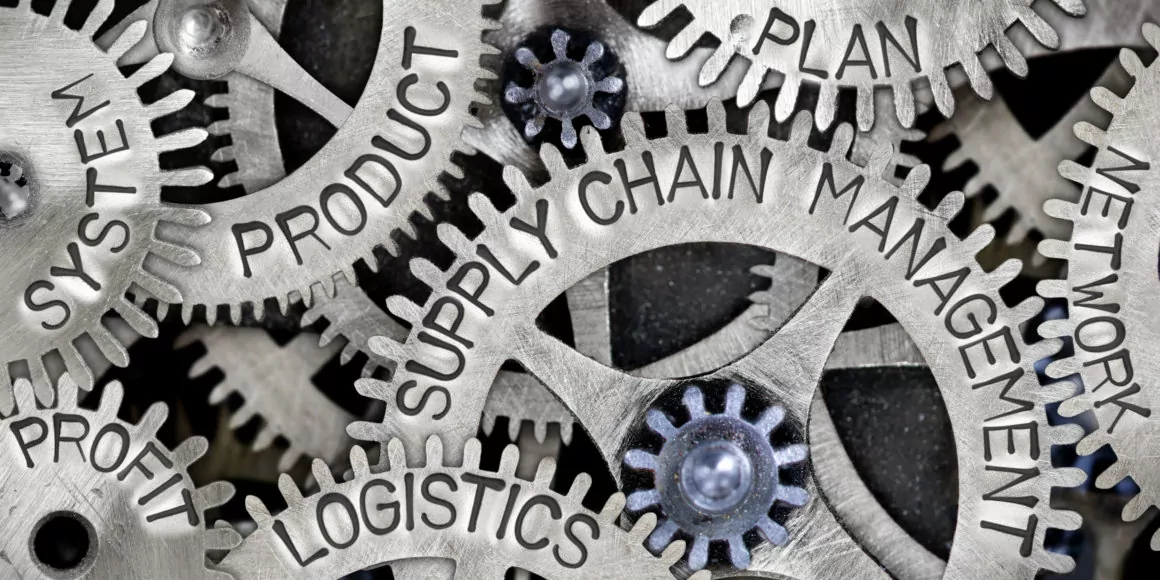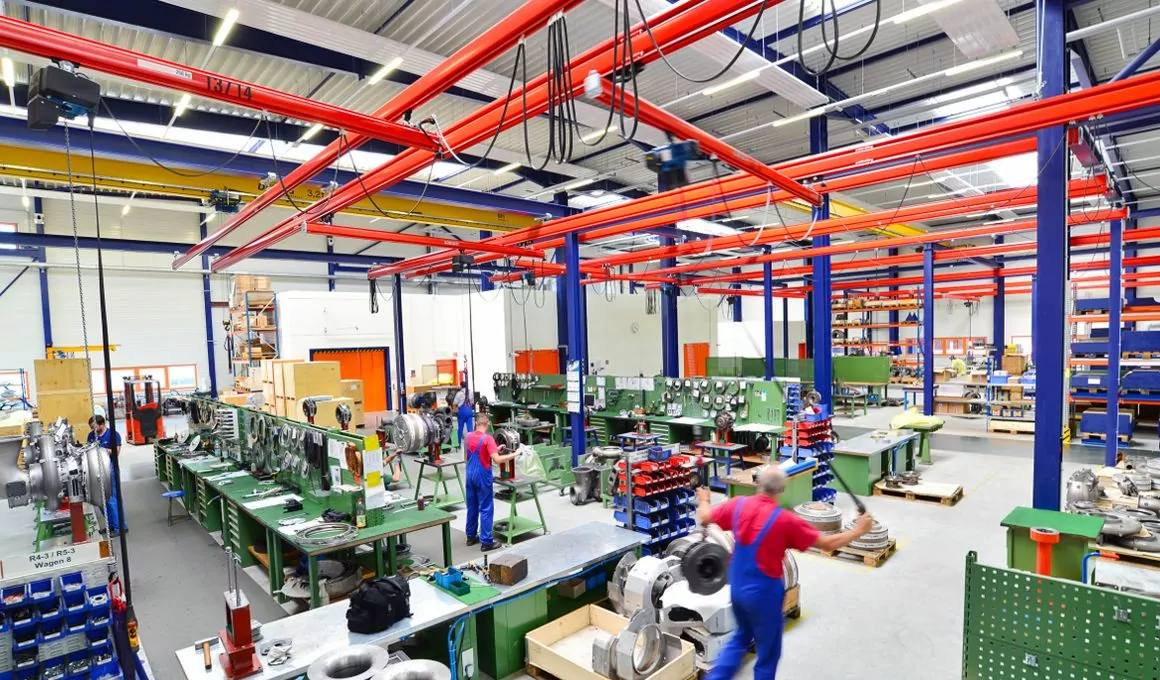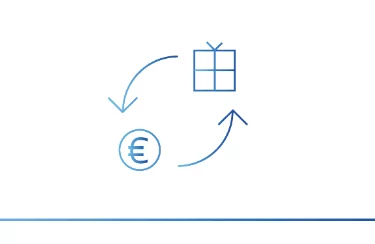INNOVATIVE COMPANION TO THE FINISH LINESUPPLY CHAIN MANAGEMENT
Fast and measurable results with a tenfold return on investment thanks to an interdisciplinary approach: our experienced supply chain management experts combine strategic consulting with direct implementation as a well-coordinated winning team. This is how we sustainably advance your supply chain – on a direct path to your goal.
SUPPLY CHAIN MANAGEMENT AND THE COMPLEXITY OF GLOBAL SUPPLY CHAINS
The challenges in supply chain management (SCM) are similar to a marathon, requiring endurance, coordination and determination. The increasing complexity of global supply chains in particular creates areas of tension: Geopolitical risks, trade barriers and national industrial policies make access to markets and raw materials even more difficult. At the same time, volatile market conditions and uncertainties call for resilient and anti-fragile supply chains that can not only withstand stress but also grow in uncertain times. Energy security risks from geopolitical conflicts, severe weather, ESG pressure and vandalism are also pressing issues in SCM. Such disruptions jeopardize the performance of supply chains and challenge companies to minimize their energy dependency and integrate alternative energy sources into their strategies.
In addition, there are growing demands for sustainability that affect all levels of the supply chain – from procurement to production and logistics. Companies are under pressure to digitalize processes, scale the use of artificial intelligence and optimize costs and inventories at the same time. Another focal point in supply chain management is dealing with labor shortages and the need to retain and engage employees. All of these challenges require strategic, technical and human adaptations – and present decision-makers with the task of finding innovative and effective ways to overcome them.
Efficient project management is a decisive factor in controlling complex supply networks. Agile methods, interdisciplinary teams and continuous risk analysis make it possible to react quickly to changes and implement strategic optimizations.
At the same time, Service After Sales is becoming increasingly important in SCM. It requires seamless integration of spare parts, maintenance and support. With the help of digital platforms and predictive maintenance, companies can minimize downtimes and strengthen long-term customer loyalty.
To create resilient, cost-efficient and sustainable supply chains, intelligent integration of project management and service after sales is essential. Companies that strategically integrate these areas into their supply chain processes can not only minimize risks, but also secure long-term competitive advantages.

ON THE FAST TRACK TO SUSTAINABLE GROWTH WITH R&P
We offer you more than just supply chain management consulting – we deliver results. With our unique combination of expertise, rapid implementation and sustainable support, we are your partner for long-term success.
We are characterized by the following unique selling points:
- Fast, measurable results: We achieve tangible results without lengthy concept phases and without the use of inexperienced junior consultants.
- Tenfold return on investment (RoI): For every consulting fee invested, you get ten times the value back – guaranteed efficiency.
- Implementation instead of theory: We don’t just talk smart – we implement! Our consulting services are geared towards actually achieving your supply chain management goals.
- Interdisciplinary team approach: We put together highly qualified partner teams that have already worked together successfully – instead of anonymous experts from large networks.
- Consultants and interim managers for implementation: Our supply chain management experts not only provide advice, but also implement the developed solutions directly as interim managers to ensure sustainable success. This means that you are not faced with unsolvable implementation tasks with beautiful PowerPoint slides. We deliver the implementation and thus the results.
- Follow-up support after the mandate: Once the project has been completed, we continue to support you by setting up a steering committee and communicating with banks and other stakeholders.
- Your partner for long-term support: We also support you after the mandate as a sparring partner
- Reliable network contacts: We offer you access to valuable supplier and service provider contacts for your value chains to further increase your efficiency.
Our aim is to offer you not just short-term solutions, but sustainable results for supply chain management that lead to the long-term success of your company.
Our services include:

CPFR (Collaborative Planning, Forecasting and Replenishment)
Efficient planning through collaborative partnerships
With CPFR, you can optimize your entire supply chain through close cooperation between manufacturers, suppliers and trading partners. We support you in implementing this collaborative model to improve demand forecasting, reduce stock levels and ensure seamless availability of goods – for greater efficiency and competitiveness.

Logistics
Optimized logistics processes for maximum efficiency
Efficient logistics is the backbone of a functioning supply chain. We support you in the analysis, optimization and digitalization of your logistics processes in order to shorten throughput times, reduce costs and maximize your delivery performance. With tailor-made solutions, we ensure the smooth and efficient movement of goods – both nationally and internationally.

Purchasing
Strategic purchasing for sustainable corporate success
Efficient and strategically aligned purchasing reduces costs, ensures quality standards and strengthens your competitiveness. We support you in optimizing your purchasing processes, selecting reliable suppliers and implementing digital procurement solutions – for a resilient and high-performance supply chain.

Production
Efficient production processes for maximum added value
Optimally controlled production is crucial for quality, efficiency and cost savings. We support you in optimizing your production planning, introducing modern production technologies and implementing lean processes. This allows you to increase your productivity, reduce waste and ensure your competitiveness.
A ROADMAP FOR SECURITY AND STABILITYRESILIENT SUPPLY CHAINS
To meet the diverse challenges of modern supply chain management (SCM), companies need to develop a comprehensive and innovative roadmap.
The following approaches help to secure the performance of the supply chain, counter uncertainties and promote sustainable growth:
Developing resilient and antifragile supply chains
In SCM, companies rely on strategies such as neutral-shoring, diversification of suppliers and increased data transparency to manage geopolitical tensions. Antifragile supply chains make it possible to take advantage of uncertainties by dynamically adapting and growing in volatile markets.
Digitalization and AI-supported decision-making
The introduction of advanced AI technologies in supply chain management allows data from different sources to be harmonized and used in real time. This allows companies to automate processes and make informed strategic decisions that complement human expertise.
Prioritizing sustainability and the circular economy
Scalable solutions for sustainability, such as the integration of green technologies and the reduction of emissions along the entire value chain, are crucial. Initiatives are needed here to achieve a balance between profitability and ecological responsibility.
Optimization of inventories, logistics networks and working capital
Efficient demand and inventory planning is essential in SCM to reduce excess stock, increase cash flow and ensure delivery readiness at the same time. Companies are increasingly relying on digital technologies such as predictive analytics, AI-powered tools and IoT sensors to obtain real-time data on stock levels and changes in demand. This transparency enables dynamic adjustment of inventories along the entire supply chain. Optimized working capital management increases liquidity. Our experts use this lever as a game changer in crises.
Resilient and antifragile supply chains: Successfully navigating through uncertainty
In order to survive in an environment characterized by uncertainty, supply chains must be designed to be resilient and antifragile. This includes strategies such as neutral-shoring, the introduction of flexible product platforms and the use of data transparency technologies. The aim is not only to ensure resilience to disruptions, but also to realize growth potential in uncertain times. Local-for-local strategies (alone or with our network) help as a precautionary measure against tariffs or trade wars. Companies should also rely on predictive analytics and AI-supported decision-making processes to identify risks in supply chain management at an early stage and act proactively.
Strategic personnel development and efficiency enhancement
Given the challenges in HR management, innovative approaches to employee retention and development are crucial. Companies can increase productivity and mitigate the potential impact of staff shortages through training programs, flexible working models and greater integration of automation and robotics. Eliminating inefficiencies gives employees the opportunity to achieve more with the same number of people, rather than exclusively looking for new skilled workers. At the same time, targeted offshoring to India for non-critical processes can be a sensible solution to free up capacity and increase cost efficiency. Clear communication and the promotion of a positive working environment also strengthen the commitment of the workforce and ensure the availability of qualified talent in the long term.
Dealing with energy security risks
Energy supply disruptions can be minimized by diversifying energy sources, investing in renewable energy and developing energy security plans. Companies should integrate emergency measures and redundancies into their energy infrastructure in order to remain capable of acting in the event of sudden supply disruptions.
What is Supply Chain Management (SCM)?
Supply chain management (SCM) encompasses all processes required to efficiently plan, procure, manufacture, deliver, control and sustainably trace products. It is based on six central pillars:
- Plan – Includes Sales, Operations and Inventory. The strategic planning of the supply chain in order to optimally manage demand, resources and risks.
- Source – The procurement of raw materials and components, taking into account costs, quality and sustainability in the form of make-or-buy or local-for-local strategies.
- Make – produce or manufacture goods with a focus on efficiency, quality and innovation.
- Deliver – Smooth and fast delivery to customers thanks to an optimized infrastructure in the areas of logistics, warehousing and distribution.
- Enable – The ability to better operate a delivered product through technology deployment, data management and service after sales, e.g. through spare parts strategies or paid workshops
- Return – Returns and recycling are managed and sustainable processes are promoted in line with the concept of a circular economy.
Development of supply chain management
SCM has developed considerably over the years. Originally, the focus was purely on optimizing production and delivery processes. Over time, market trends, customer expectations and the coordination of complex global supply chains came to the fore. Today, companies are increasingly relying on modern technologies such as artificial intelligence to analyze data in real time, minimize risks and make processes more flexible.
Current developments, such as the growing demand for sustainability and transparency, require additional adjustments. Customers want to know where products come from, how they are manufactured and what environmental impact the supply chains have. At the same time, trends such as nearshoring and the reduction of dependence on foreign production are encouraging the reorganization of supply chains. Supply chain management therefore remains a dynamic field that must constantly respond to economic, technological and social changes.
What does a Supply Chain Manager do?
Supply chain managers are responsible for coordinating and optimizing all processes along the supply chain to ensure that products and services get from the manufacturer to the customer efficiently and cost-effectively. They monitor the strategic planning of the supply chain, the procurement and warehousing of raw materials, production, transportation and maintenance. They identify bottlenecks and risks, develop risk mitigation strategies and ensure that all parts of the supply chain are seamlessly connected. They also work closely with various departments, such as purchasing, logistics, project management, development and sales, to ensure smooth collaboration. Supply chain managers use modern technologies to increase efficiency and reduce costs while increasing the flexibility and resilience of the supply chain. This includes strategies such as shortening replenishment times or increasingon-time and full delivery(on-time-delivery OTD or on-time-in-full OTIF). Another important aspect of their work is the continuous analysis of market trends and the adaptation of the supply chain strategy in order to be able to react to changing conditions such as geopolitical uncertainties or fluctuations in demand.
ENGAGE SUPPLY CHAIN MANAGERYOUR ADVANTAGES AT A GLANCE
Supply chain managers not only ensure smooth operations, but also prepare companies specifically for future challenges.
Risk management
They identify and minimize risks through strategic planning, for example in the event of geopolitical uncertainties or energy bottlenecks.
Process optimization
By increasing efficiency in procurement, warehousing and logistics, they reduce costs and improve responsiveness.
Project management
Agile methods, interdisciplinary teams and continuous risk analysis are used to manage complex SCM projects in order to ensure efficiency and flexibility.
Service After Sales
Spare parts availability, maintenance and support are integrated into the supply chain in order to minimize downtimes and strengthen customer loyalty.
Sales, Inventory and Operations Planning (SIOP)
The optimal coordination of sales, inventory management and operational processes makes it possible to ensure an optimum balance between supply and demand.
Use of technology
They use digital solutions and AI to make informed decisions and react quickly to market changes.
Flexibility and resilience
They design anti-fragile supply chains that can grow even in times of crisis.
Cost and productivity increase
Through automation and process optimization, they reduce operating costs and increase efficiency.
Labor shortage
They are countering the shortage of skilled workers with innovative working models and the use of automation.
CORE COMPETENCIES OF F&P SUPPLY CHAIN MANAGERS

Optimization of procurement, production and logistics networks
Planning of sales, inventory and operations
Design of service models
Inventory optimization (WCM), inventory reduction or strategic stockpiling, release of working capital, reduction of safety buffers in line with the sales situation

Implementation of Efficient Consumer Response (ECR) or Collaborative Planning, Forecasting and Replenishment (CPFR)
Establishing the necessary controlling tools to manage the supply chain
Optimization of processes, workflows and structures in purchasing, production, logistics, project management and service
Implementation of concepts by experienced interim managers
Your contacts for supply chain management
Case Studies
Here you will find current case studies of various supply chain management assignments.
Also read our supply chain blog posts
Blog
Vom Einkauf zum Profit – Purchase-to-Pay für effiziente Beschaffungsprozesse
Expert: Dipl. Oek. Sascha Stockfisch
We provide you with teams along the entire value chainOur cross-functional solutions

Our fields of activityIncreasing performance through operational excellence
Our experts take a holistic view of your value chain and design your processes with an intelligent strategy, which is then implemented in a customized manner.
Fast candidate selection in 48 hours:Ready for action for your success

Projectinquiry Fill out
Tell us about your project and what kind of expert you are looking for. If your project is complex and multi-faceted, we are your first partner to present you with experienced teams.

Get connected with the right expert
Within 48 hours, we will send you pre-selected profiles that are tailored to your project requirements.

Select your candidate
The onboarding process starts with a video call with your selected expert. If you are not yet convinced by the expert, we will be happy to find the right one on request.
















